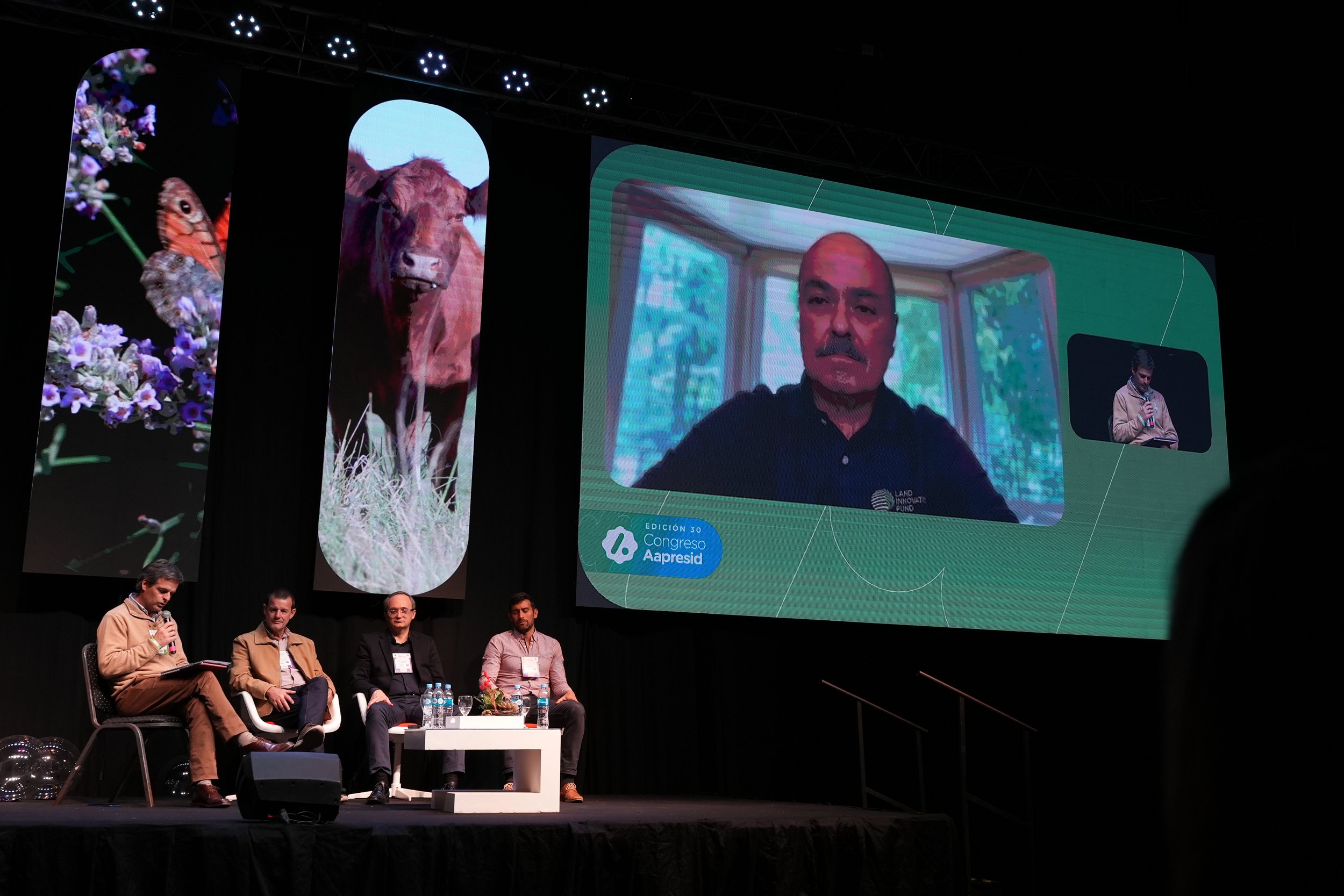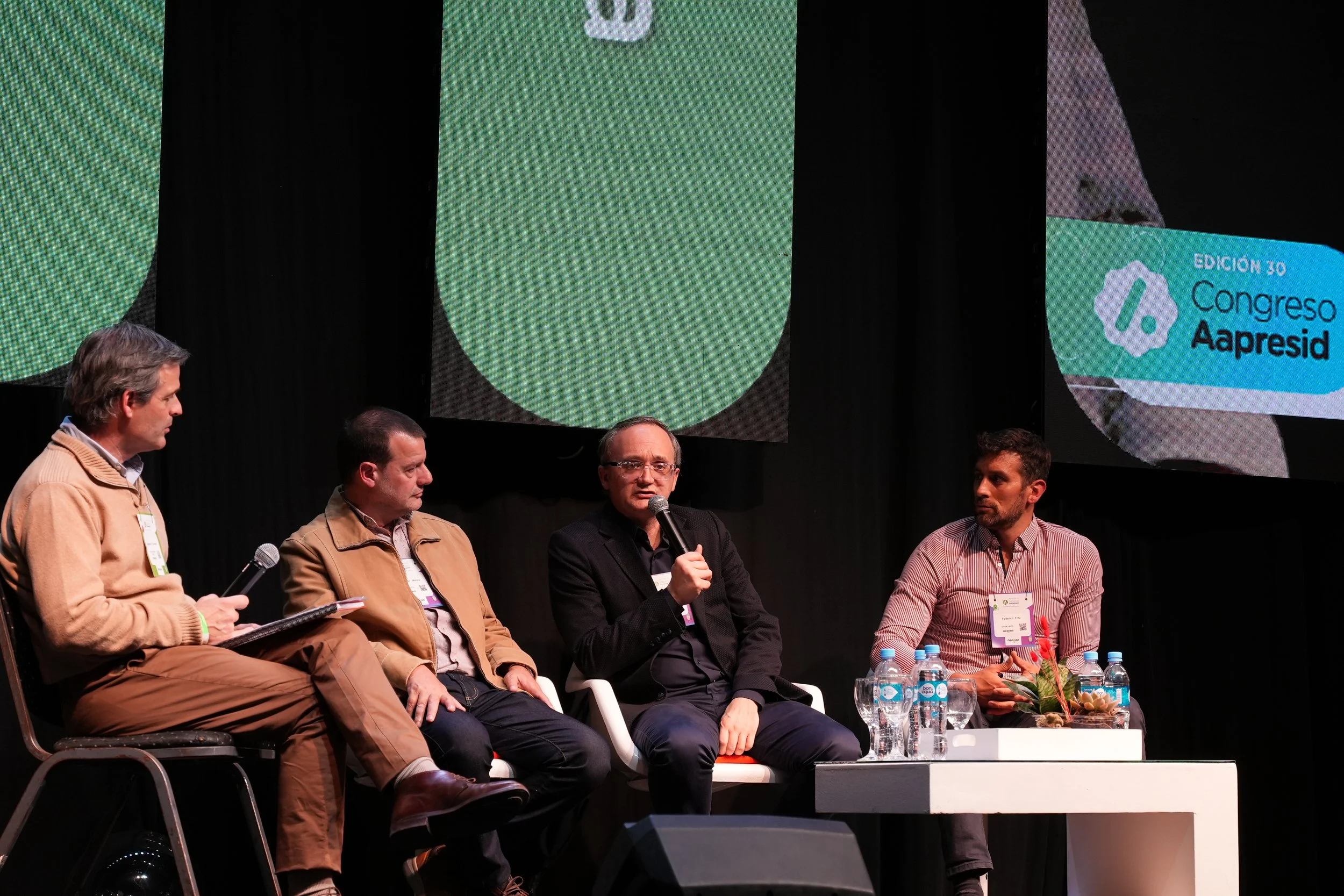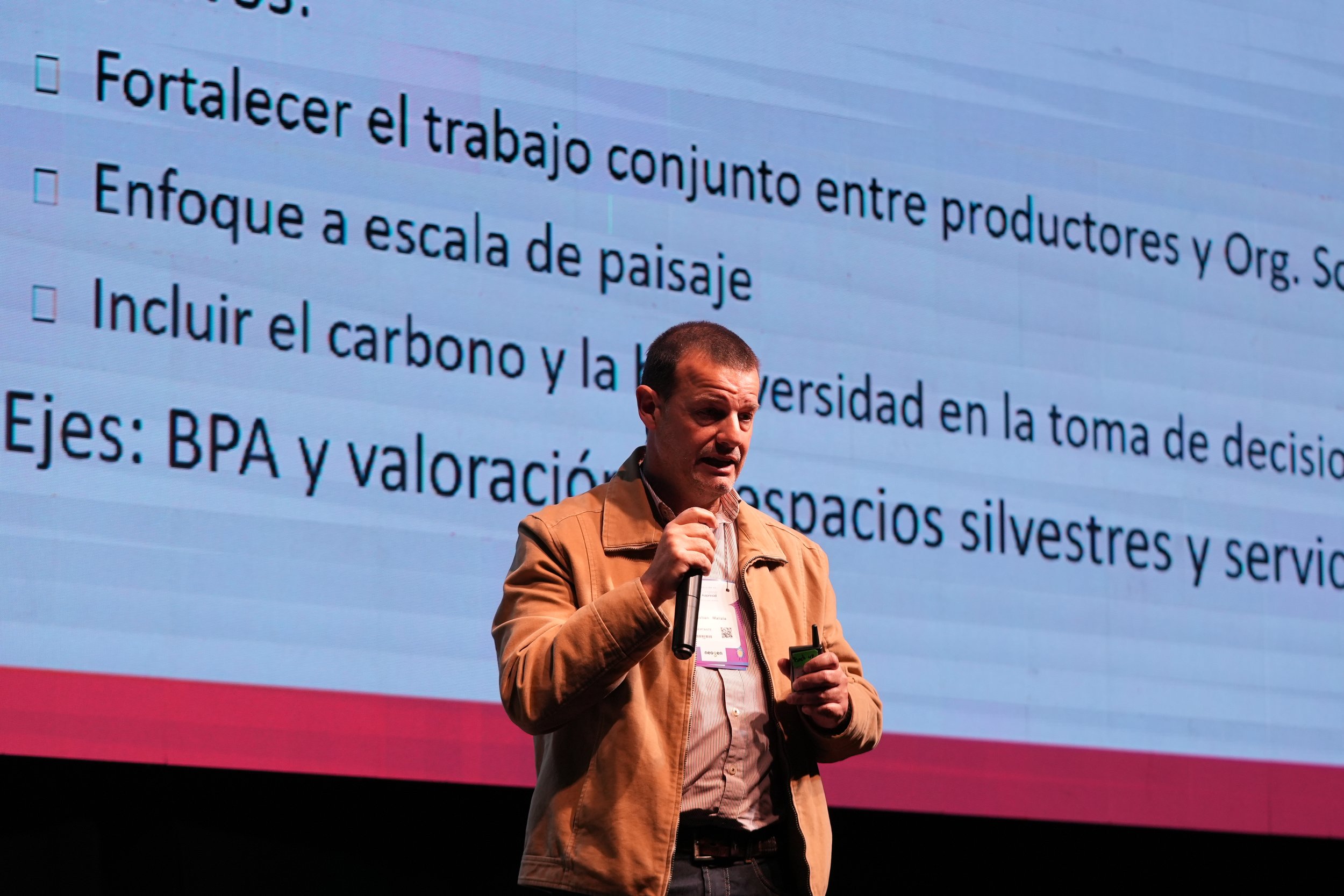International congress hear LIF and partness on projects in the gran chaco
The Land Innovation Fund speaks in a roundtable with partner institutions on alliances and synergies for sustainable and low-carbon agriculture at AAPRESID’s 2023 Congress.
The Land Innovation Fund will be present at APPRESID’s 2023 Congress, from August 9 to 11, in Rosario, Argentina. On Thursday, August 10, at 9 a.m., the Fund will participate in a roundtable with leaders of four projects underway in the country, led by nine partner institutions, to discuss innovations and alliances for sustainable and low-carbon farming in the Gran Chaco biome. Addressing a variety of issues such as carbon markets, traceability and monitoring, responsible agricultural production models, biodiversity and sustainability protocols, the projects underscore the Land Innovation Fund's commitment to fostering innovative solutions for some of the biggest challenges on today's agricultural and climate agendas, working with farms and impacts on local territories. Since its launch in 2021, the Fund has supported the implementation of 37 projects with 46 partners in South America, covering more than 1.9 million hectares and engaging more than 1,400 farmers.
This gathering will discuss synergies and interactions among LIF-funded projects aimed at innovation landscapes for sustainable and climate-smart agriculture in the Gran Chaco biome. Current initiatives in the country have adopted a consortium format to broaden the scope of actions in the field. The ProYungas Foundation, focused on conservation and sustainable development, in partnership with the Argentine Association of No-Till Farmers (AAPRESID) and the Moisés Bertoni Foundation from Paraguay, supports the adoption of good agricultural practices and carbon sequestration on five pilot farms in the Gran Chaco biome. The Argentine Association of Regional Consortia for Agricultural Experimentation (AACREA) works with the Argentine Soy Supply Chain Association (ACSOJA) to create sustainable development models with at least 100 farmers in the country. The Argentine Edible Oil Association (CIARA), in partnership with Peterson-Control Union (PCU) and the Rosario Board of Trade, runs an integrated monitoring and verification platform for all of Argentina’s soy sales. And Solidaridad Regional, in partnership with institutions in Bolivia and Paraguay, charts and defines sustainable soy criteria and protocols for the region, to comply with international market recommendations.
"We believe that complex problems such as deforestation call for integrated and innovative solutions. That is why we coordinate our actions and initiatives to bring efforts and expertise together for sustainable agricultural development in the Gran Chaco," says Ashley Valle, director of the Land Innovation Fund. "The four initiatives highlighted at the AAPRESID Congress promote the dissemination of regenerative, low-carbon agricultural practices, in step with global environmental challenges to address new anti-deforestation legislation," she adds.
Innovation and alliances for a sustainable agriculture:
Partners from different segments, ranging from the third sector to the public authorities, including trade organizations, are helping to lay the foundations for the Fund's 360º engagement in one of Latin America's most environmentally vulnerable areas, the Gran Chaco biome. Through ongoing dialogs, their shared knowledge will help produce integrated, innovative solutions for applied agricultural transformation.
The Director of the ProYungas Foundation, Sebastian Malizia, will describe steps taken and preliminary results of the Good Agricultural Practices and Carbon Sequestration project, implemented on five pilot soy farms in Argentina and Paraguay, covering at least 150,000 hectares. This project quantifies carbon in farming activities and native vegetation; classifies each by category (carbon emitters, carbon neutral or carbon sink); develops a carbon offset project for native vegetation, with international accreditation; and is designing an online information platform to ensure project transparency.




Images from the last edition of the Aapresid congress (Credits: Aapresid)
As a leader of the environmental area in the Argentine Association of Regional Consortia for Agricultural Experimentation (AACREA), Guillermo Garcia will present sustainable production models being implemented in the Gran Chaco region. Developed in partnership with the Argentine Soy Supply Chain Association (ACSOJA), the Environmental and Productive Sustainability in the Chaco project will work with at least 100 farmers, across an area of about 250,000 hectares of the Argentine biome, to establish and validate on-farm ecological intensification models to maintain or increase farmers’ incomes, reduce crop losses, conserve natural areas on farms, address the restoration of degraded soils and environments, and apply environmental indicators with a focus on soil carbon and biodiversity.
The General Manager at Peterson Control Union, Diego Cybulka, will present the advances of the ViSeC Monitoring Platform for the Gran Chaco, an initiative coordinated by the Argentine Edible Oil Association (CIARA) in partnership with the Rosario Board of Trade. Their proposal is to establish a traceability and monitoring platform to assess environmental, social, and economic impacts of soy and other commodities' production in priority areas of Argentina, starting with the Gran Chaco. The ViSeC platform will gather data from the monitoring of all the soy traded in Argentina, pooling relevant sustainability parameters and requirements for its sale. The initiative involves the contribution and engagement of a variety of players to generate data in a transparent and reliable manner, to comply with growing traceability requirements in the international market.
The manager of the Solidaridad Foundation in Argentina, Agustin Mascotena, will discuss challenges, criteria, and approaches to identify and design protocols for Sustainable Soy in the Paraguayan and Bolivian Gran Chaco. Conducted in partnership with local institutions – potentially the National Association of Oilseed and Wheat Producers (ANAPO) in Bolivia and the Farmers' Association for a Sustainable Chaco (APACs) in Paraguay – the initiative will help enable innovative solutions in various fields such as public policies, compliance verification systems and tools, and governance. Based on a multisectoral approach, the Solidaridad Foundation proposes to translate consensus into technological or regulatory innovation tools adapted to local needs, in dialogue with similar initiatives in neighboring countries (Argentina) and with the international sustainability agenda (European Union).
In addition to the four projects showcased at the AAPRESID Congress, the Fund's portfolio in Gran Chaco also includes the PRIAS: Regenerative Practices in the Plains of Eastern Bolivia initiative. Led by the Foundation for the Conservation of Chiquitano Vegetation (FCBC) in partnership with the Regional Consortium for Experimental Agriculture (CREA) in Bolivia and the Conservation Strategy Fund (CSF), the project promotes regenerative agriculture practices through pilot experiences with groups of farmers in different soil conditions with a potential to expand their results to other farms in the region.
Land Innovation Fund at the Aapresid Congress:
Roundtable: Innovation and alliances for sustainable farming
Date: Thursday, August 10, at 9 am, room KWS
Participants:
Ashley Valle (LIF)
Diego Cybulka (ViSeC)
Guillermo Garcia (AACREA)
Agustin Mascotena (Solidaridad)
Sebastian Malizia (ProYungas)
Moderator: Alejo O´Donnell (Aapresid)

